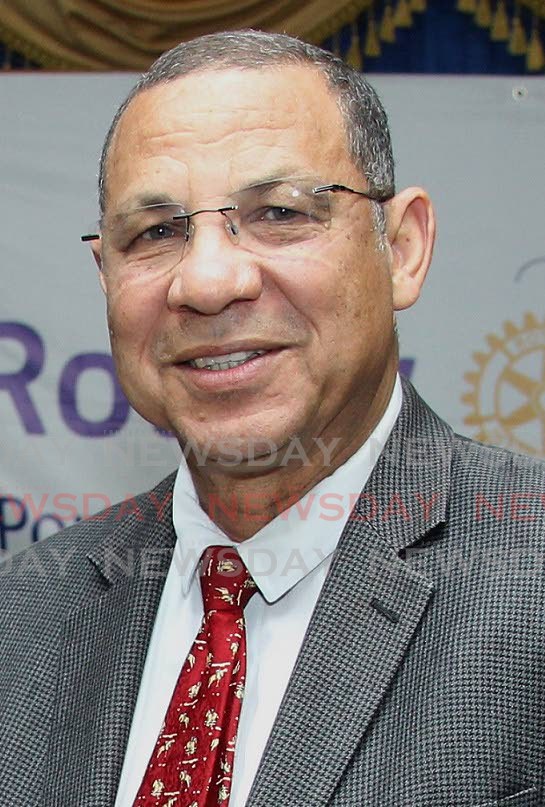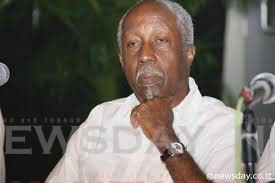The presidency

MERVYN ASSAM
MARIANO BROWNE
REGINALD DUMAS
WINSTON PADMORE
IT HAS repeatedly been pointed out over the years that, in the absence of a consensus candidate, a simple majority means that the candidate nominated by the Government is bound (unless enough government members break ranks) to be elected, since the government holds a constitutional 16-15 majority in the Senate and a majority (of whatever number) in the 41-member House of Representatives.
In essence, therefore, it is further argued, the person elected as President is really a government choice and, more particularly, the creature of the Prime Minister. (This does not necessarily mean, however, that he will bow to the directives of the Prime Minister).
It is important to bear in mind that the Office of the President, as it was created, has a vital role to play in building and fostering a spirit of nationalism and national unity amongst all the citizens of the country. The role is particularly important in the context of what is currently observed as divisive and acrimonious politics which operates at our national level today, and which, if left unchecked, threatens to tear our society apart.
The proposal is also being made for the abolition of the presidency. If that were to happen, TT would be the only country in the world without a head of state by whatever name called (king, queen, sultan, president, supreme leader, etc).
Support for direct public voting for the President appears to be growing rapidly. But how will candidates for such an election be chosen? Who will choose them? If they are to be put forward by political parties, will the same charge of political partiality not be made against the winner?
As a first constitutional change, we propose that the present simple majority be replaced by a two-thirds majority of members of the Electoral College and nominations should come from the following:
1. The Prime Minister.
2. The Leader of the Opposition.
3. Civil society, such as labour unions, business, the IRO, professional bodies, and the universities.
This forces consultation in the national interest between the politicians and the people to agree on one or more candidates. If there is more than one candidate, the person obtaining two-thirds majority in the Electoral College is elected President. We suggest that this would be a simple amendment to the existing constitutional provisions.
There have been many calls for an executive presidency, apparently to replace the current presidency. But what is an executive president?
An executive president is someone who is simultaneously both head of state and head of government and performs the functions of both offices. In such a situation, there is therefore no need for a prime minister, who is a head of government. But the Prime Minister of TT is said to have too much power. What therefore would be the logic in making such an individual even more powerful by conferring on him or her the functions, however limited, of our head of state? Unless – as, say, in the USA – there are effective checks and balances enshrined in the Constitution.
Scope of authority of the President
The recent situation with regard to the Police Service Commission has clearly demonstrated the need to enhance in certain specific ways the scope of authority of the President.

The Constitution, as is by now well known, gives the President the power to appoint, after consultation with the Prime Minister and Leader of the Opposition, some members of the Judicial and Legal Service Commission (JLSC), members of the Police Service Commission (subject to affirmative resolution by the Parliament), members of the Public Service Commission and members of the Teaching Service Commission, among several other appointments.
The Constitution also gives to the President, acting in his own discretion, the power to remove from office a member of a service commission, other than the JLSC, for inability to discharge the functions of his office, whether arising from infirmity of mind or body or any other cause, or for misbehaviour.
Now, while this may appear to be a powerful sanction in the hands of the President, in practical terms it has little effect since the President currently has no authority, once he has appointed the commissioners, to enquire into, or review, or provide oversight of any of the operations of the commissions or the performance of members thereon. In fact, it would appear that once appointed, the commissions are not subject to any oversight.
In this regard it is here proposed:
That the President be given the constitutional authority to, at any time, in his or her own discretion, review the operations of any of the service commissions, other than the Judicial and Legal Service Commission, and to make any enquiries of them as to their plans, proposals, financial accounts and performance.


Comments
"The presidency"